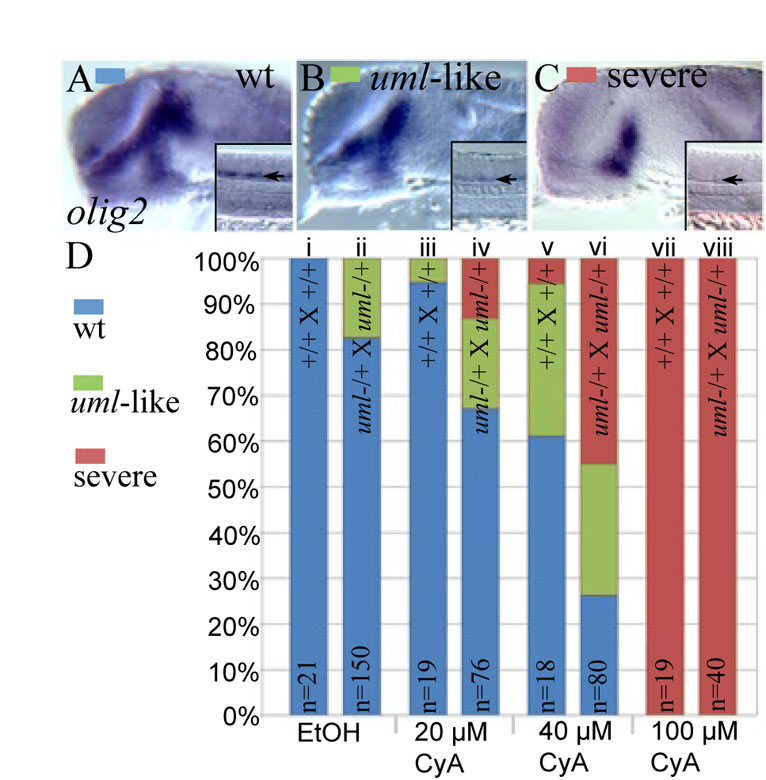Fig. S3 uml(boc) mutants and heterozygotes are hypersensitive to reduced Hh signaling. (A-C) Representative images showing olig2 expression in the forebrain and spinal cord (insets). Lateral views, eyes removed. (A) Wild-type olig2 expression. (B) Reduced olig2 expression as seen in uml mutants. (C) Severely reduced olig2 expression seen in the absence of Hh signaling. (D) Bar graph showing the percentage of embryos with the different olig2 expression patterns shown in A-C. Clutches were derived from wild-type (+/+) or uml+/- heterozygous parents as labeled on each column. (i) 100% of embryos derived from wild-type parents had normal olig2 expression when treated with 1% ethanol (EtOH, control for CyA treatments). (ii) 17% of embryos from uml+/- heterozygous parents had reduced olig2 expression, indicating that this phenotype is not fully penetrant. (iii) 20 µM CyA treatments had little effect on olig2 expression in wild-type embryos. (iv) 20 μM CyA treatments led to severely reduced olig2 expression in 13% of embryos derived from uml+/- heterozygous parents and moderately reduced olig2 expression in 20% of these embryos. (v) 40 μM CyA treatments led to moderately reduced olig2 expression in 33% of wild-type embryos and severe reductions in 6% of embryos, pointing to variability in the CyA response. (vi) 40 μM CyA treatments caused severe olig2 defects in 45% of embryos from uml+/- heterozygous parents. (vii, viii) CyA concentrations above 100 μM led to severely reduced olig2 expression in 100% of embryos, regardless of genotype.
Image
Figure Caption
Acknowledgments
This image is the copyrighted work of the attributed author or publisher, and
ZFIN has permission only to display this image to its users.
Additional permissions should be obtained from the applicable author or publisher of the image.
Full text @ Development

